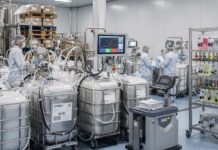In the upcoming years of 2023 and beyond, various factors will significantly influence drug development and its associated packaging requirements. These factors include advancements in AI for pharmaceutical manufacturing, the demand for novel injectable dosage forms, and a heightened emphasis on sustainability. These trends will bring about substantial changes to the pharmaceutical sector over the next decade. Some of these changes will lead to beneficial enhancements, such as the introduction of new personalized medicine options, while others will pose challenges that need to be resolved.
Trend 1: Customized Therapies
Personalized medications, tailored to the specific needs, lifestyle, and even genetic makeup of individual patients, have ascended in importance. They offer the potential for more successful treatment outcomes and are anticipated to significantly transform the pharmaceutical domain over the next decade.
With access to abundant patient data, companies can deepen their comprehension of individual patient requirements, resulting in precision-crafted therapies that are more efficacious and produce fewer side effects. The popularity of personalized medicines is predicted to surge as their distinct therapeutic advantages become evident. However, due to their individualized nature, these therapies will pose challenges in terms of manufacturing efficiency. Adaptations to production lines will be essential to accommodate smaller, specialized production runs.
Trend 2: Expansion of Automation Technologies
The integration of automation, including robotics, into manufacturing processes, drug screening, and testing has gained momentum. Automating interactions with products and packaging reduces human errors and subsequently minimizes waste. Machines excel at executing repetitive tasks more efficiently and swiftly than humans, enhancing the sterility levels within the industry.
Automation’s influence on supply chain management for packaged drug products is evident in manufacturing, enhancing track and trace capabilities. Automated systems proficiently monitor inventory during storage and transportation, curtailing waste, optimizing efficiency, and addressing counterfeit medication concerns.
Nonetheless, automation, regardless of the manufacturing phase, poses hurdles for companies. Investment in new equipment and technology is requisite to harness the benefits of automation. Some processes, such as kitting for injectable drug products, might prove more challenging to automate, especially when catering to diverse markets with distinct labeling and packaging regulations. The adoption of new technology also entails significant costs related to staff retraining to ensure proficient operation and maintenance. Additionally, the integration of these technologies into existing systems presents its own set of challenges. Automation doesn’t obviate the need for visual inspections or the implementation of thorough quality control measures.
Trend 3: Serialization, Blockchain, Increased Digitization, and AI
Anticipated modifications to the U.S. Drug Supply Chain Security Act (DSCSA) will have profound implications for packaging and labeling. The FDA’s DSCSA regulations will alter labeling requirements for pharmaceutical companies intending to distribute to the U.S. Interoperable and electronically traceable products at the package, case, and pallet levels will be essential for serialization compliance, effective immediately this year. This will exert an immediate impact on drug packaging and logistics. Both drug developers and their supply chain partners must now take strides to implement process and infrastructure changes to ensure DSCSA compliance by November 2023.
Blockchain, a technology that secures information against tampering, presents potential for enhancing serialization’s effectiveness in the years ahead. While not currently mandated by U.S. law or regulations in other markets, blockchain can be harnessed to comprehensively track products throughout production, storage, and distribution, thereby bolstering security and accuracy while addressing global supply chain vulnerabilities and fraudulent activities. The digitization of data is enhancing efficiencies across various operational realms. The industry is moving toward a more consistent approach in production, packaging, and supply chain management to streamline each phase of the process. Digitization will also play a pivotal role in ensuring the authenticity and quality of primary and secondary packaging through technologies that enable robust authentication and quality control measures.
AI is currently employed in drug development to analyze extensive datasets and identify potential drug targets. However, its transformative potential extends to drug manufacturing and packaging. AI is poised to enhance predictive maintenance, optimize processes, manage inventory, and elevate overall operations in drug development and manufacturing as sophisticated algorithms continue to emerge.
Trend 4: Emphasis on Sustainability
While sustainability is a prominent concern in the pharmaceutical sector, particularly within packaging, the implementation of viable, biodegradable, or recyclable packaging solutions remains a challenge. The approval process for new packaging formats or materials requires rigorous compatibility testing with drug products and regulatory approval.
Over the next decade, the pharmaceutical industry will reevaluate its supply chain strategy, transitioning to more responsible sources of raw materials for packaging and other facets of pharmaceutical supply, while simultaneously reducing the carbon footprint of transportation. The concept of the circular economy, centered on reusing and recycling materials, will extend to drug manufacturing. This might involve designing drug packaging and containers for reuse or recycling, as well as repurposing or recycling waste generated during drug production.
Beyond enhancing recyclability in packaging, sustainability encompasses a broader spectrum. It encompasses minimizing energy consumption in the manufacturing process, reducing manufacturing waste, and fostering an environmentally conscious mindset within the industry. A comprehensive evaluation of the drug product’s supply chain and packaging can lead to minimized environmental impact.
Preparing for the Future
Pharmaceutical companies face multifaceted challenges in adopting emerging industry trends, encompassing logistical adjustments, changes to established practices, and embracing a novel mindset and cultural paradigm. Collaboration with forward-thinking Contract Packaging Organization (CPO) partners is pivotal, enabling adaptation to a dynamic landscape and shifting paradigms. The sector must remain agile, proactive, and responsive to unforeseen changes, while also ensuring adherence to ethical, regulatory, medical, and social considerations.
With due attention to these factors, and by exercising common sense, the pharmaceutical industry possesses the requisite tools to stay aligned with the evolving future. Collaborating with a CPO offers access to cutting-edge technologies without the need for substantial equipment investment or personnel retraining. Such partnerships provide flexibility and regulatory compliance, enabling manufacturers to concentrate on their core strengths.























